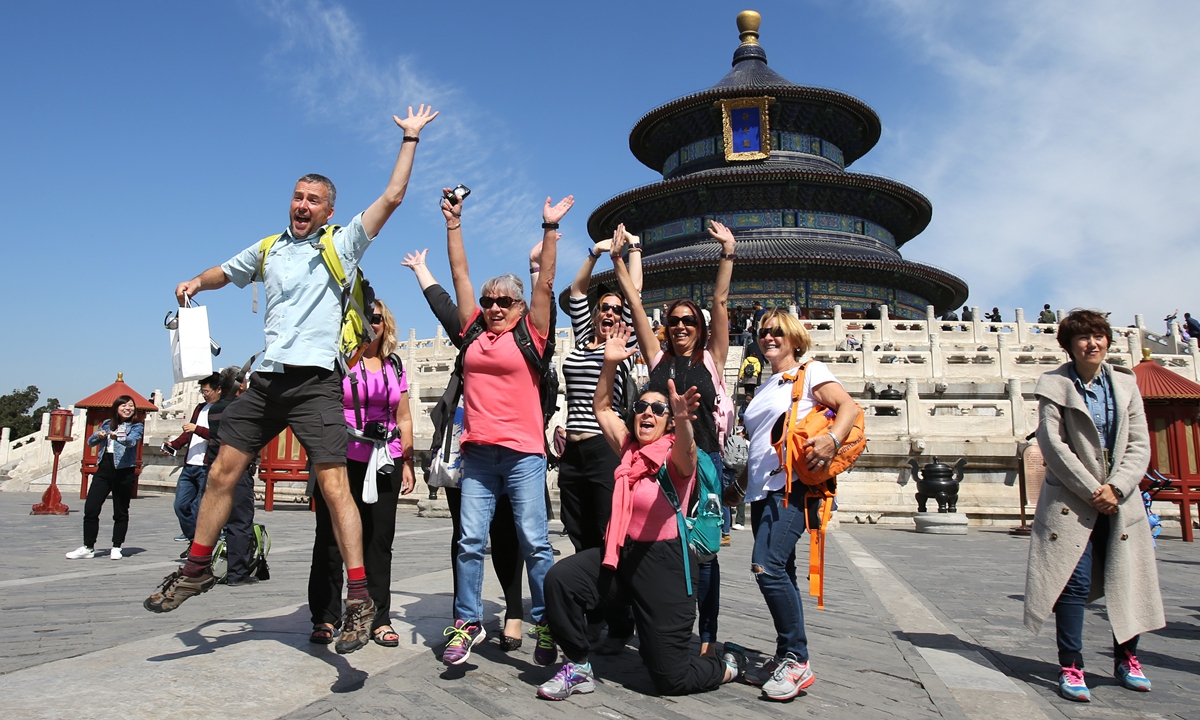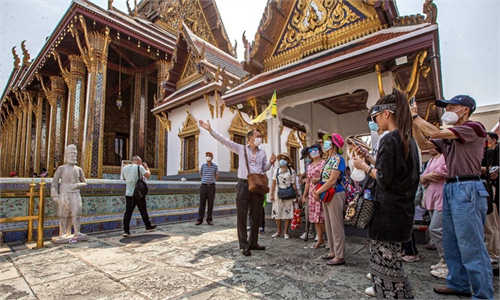Culture will empower travel services, participants say at China’s flagship services trade fair

Foreign tourists enjoy themselves at Tiantan, a UNESCO World Heritage Site built in 1420, in Beijing. China's tourism industry is booming and the nation has become the largest source of international tourists. More than 14 million foreign nationals entered China in the first half of 2024, according to the National Immigration Administration. Photo: VCG
Optimizing and improving the value chain of travel services with the integration of culture will be crucial to promoting the high-quality development of the tourism industry, experts and officials said on Thursday at the World Conference on Tourism Cooperation and Development 2024.
A green paper discussing how to unleash the potential of China's inbound tourism was jointly released by the Pacific Asia Travel Association and World Tourism Cities Federation on Thursday at the conference, which is one of the 13 theme forums at the 2024 China International Fair for Trade in Services (CIFTIS).
"We have made improvements in the integration of culture and travel to provide more diverse services to foreign tourists," Wang Huan, deputy director of brand operations at the Beijing Tourism Group, told the Global Times on Thursday.
Wang said that many foreign customers prefer to have a deep dive into China's or Beijing's culture, such as hutong (a type of narrow alley commonly found in Beijing), or to experience aspects of intangible heritage.
Culture already plays no small role even before tourists visit a city, Justine Simons, deputy mayor for culture and creative industries in London, said on Thursday at the tourism conference.
She noted that people may get to know London through movies, such as James Bond, Harry Potter or Paddington. And now, many people get to know a city from the digital world.
"China has witnessed incredible success with the game Black Myth: Wukong," said Simons, noting that cultural tourism is a growing trend around the world.
How to combine Chinese traditional culture and modern culture with tourism is a problem that enterprises need to think about, Ning Guoxin, vice president at UTour Group Co, said on Thursday at the tourism conference.
"Travel services integrated with culture are of higher quality and can provide inbound tourists with a more diversified experience," said Ning.
In July, a resolution adopted by the third plenary session of the 20th Communist Party of China (CPC) Central Committee said that China will institute a system of the defining symbols of Chinese culture and refine institutions and mechanisms for promoting the full integration of culture and tourism.
China's tourism industry is booming and the nation has become the main destination for international travelers.
More than 14 million foreign nationals entered China in the first half of 2024, according to the latest data from the National Immigration Administration.
"Inbound tourism is a pivotal focus of China's tourism industry, bolstered by robust policy innovation," Dai Bin, president of the China Tourism Academy, said on Tuesday at a conference for inbound tourism.
Facilitation policies for visas, customs clearance and electronic payments for inbound tourists have been consistently improved.
At present, China has implemented comprehensive visa exemptions for holders of ordinary passports from 24 countries, unilateral visa-free entry policies for 16 countries, and established 72- or 144-hour visa-free transit regimes with 54 countries.



